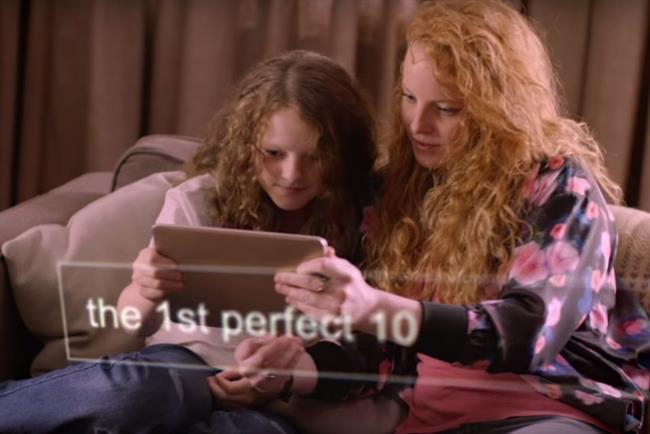For the first time, the competitive gap between the traditional rugby playing nations and those deemed ‘second tier nations’ has lessened, opening up the game.
Rugby’s footprint, popularity and audience is growing. 2016 will see Rugby Sevens return as an Olympic sport in Rio, 2018 will see San Francisco host the Rugby World Cup Sevens tournament and 2020 will see tourment heroes Japan host the Rugby World Cup.
47% of UK Rugby Union visitors are female
Rugby is going global – gaining confidence outside the comfort of The Commonwealth.
Aside from our on pitch performance, things are going swimmingly. But if I were writing a school report on the tournament and brands, the phrase "could do better" would be penned. And here’s why.
Less crowded enviorment
During the half time of the England vs Australia game, as the reality sank in that we would be the first nation out, I watched the launch of the new Virgin Media Vivid ad; previously led by sprinting legend Usain Bolt.
While a little heavy-handed with the digitalisation of Emmeline Pankhurst alongside pop star Paloma Faith, the advert utilises England footballer Steph Houghton and other female heroines, depicting a pivotal moment in a young girl's life.
What Virgin has done is identify a transformative story around heroines, that anyone regardless of gender can relate to in the same way that Guinness has with its Made of More content.
Virgin replaced one of the world’s most iconic male sporting icons with a female illustrated story for a product that will absolutely be targeted at men and women. It then significantly invested in the ad spend to secure a prime slot in the middle of England’s key fixture, understanding the make-up of the tournament audience and showing how to create a story that transcends gender.
Women make 75% of the spending decisions in a household
Telling a story that transcends race, gender and geography and by extension elevates the brands as the tales are inspirational and relatable.
All sponsors should be looking for opportunities that showcase themselves within an environment which is not crowded and which fits with their values of diversity and audience.
Lets talk about women
If the objective of the World Cup organisers is to leave a lasting legacy of growing participation at all levels and across a diverse player spectrum there are seemingly still some untapped opportunities for sponsors.
How many of you know that the England team are the current Women’s Rugby World Cup Champions?
The same squad that won the iconic BBC Sports Personality of the Year 2014, Team of the Year award. Beating a fantastic European Ryder Cup team, the British athletics squad and the all-conquering Mercedes F1 team in the process.
The obvious audience
Would you have assumed that women are almost as keen on rugby as men, with 47% of UK Rugby Union visitors being female? Or known that women make 75% of the spending decisions in a household and are the bread winner in one of five households, meaning that big-ticket items such as cars are increasingly decided by women. It is a "no-brainer" that brands should appeal to them, no matter what.
Land Rover has touched on women in their storytelling of grassroots rugby across the globe with their #WeDealinReal campaign but as current World Cup holders surely sponsors or England Rugby are not maintain momentum from a legacy perspective.
But while it hasn’t been grabbing the headlines, perhaps Coca Cola’s Great Britain campaign isn’t too far off of the mark. The work sought to engage the entire nation ahead of the tournament by simply encouraging and enabling them have fun with a rugby ball, starting with the ball exchange.
This comprised inspirational content led by Rugby World Cup winners Jason Robinson and Natasha Hunt and free, rugby-inspired activity sessions across the country, including rugby inspired dance as part of its ParkLives programme.
This accompanied by its biggest ever rugby on-pack promotion, appealing to gatekeepers, putting up to 1m balls into the hands of consumers across the country. A truly inclusive and cohesive campaign.
In this tournament it’s now feasible that marketers, if clever, can cross over from one gender to another. I’m not suggesting that brands should do a complete turnaround but it's more than possible to extend brands to a large untapped market without destroying the core proposition.
The prize is still there to be won.


